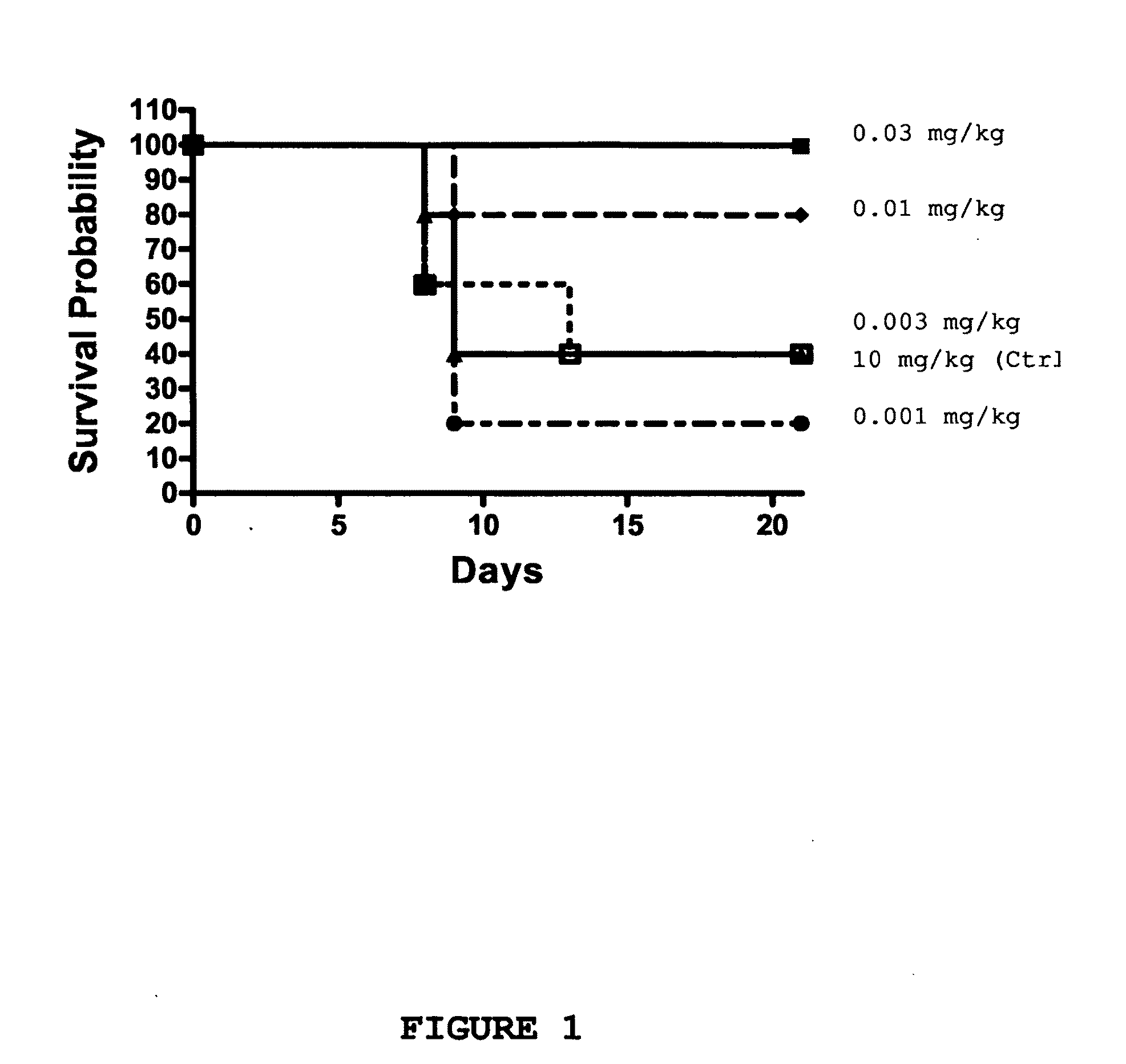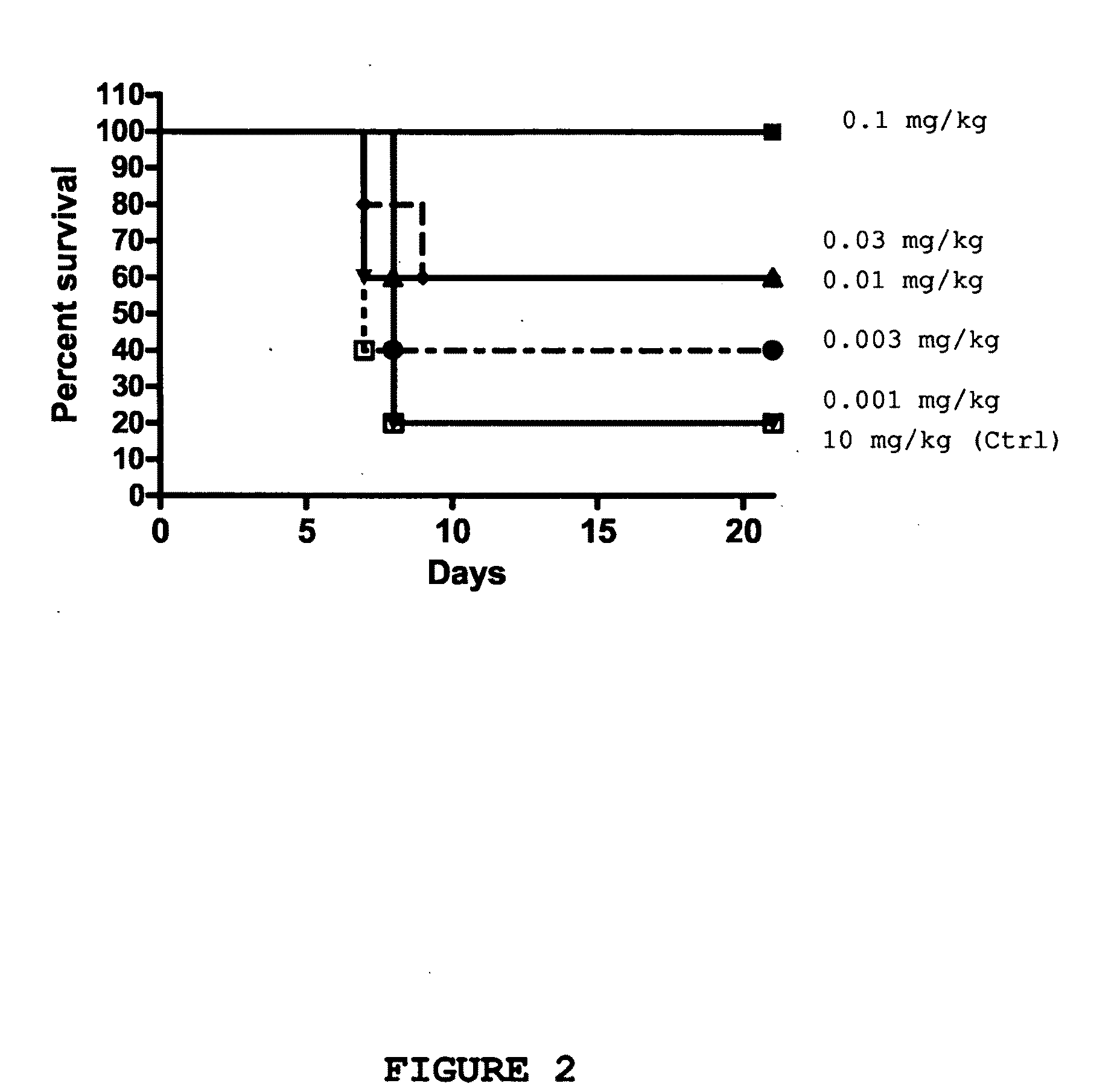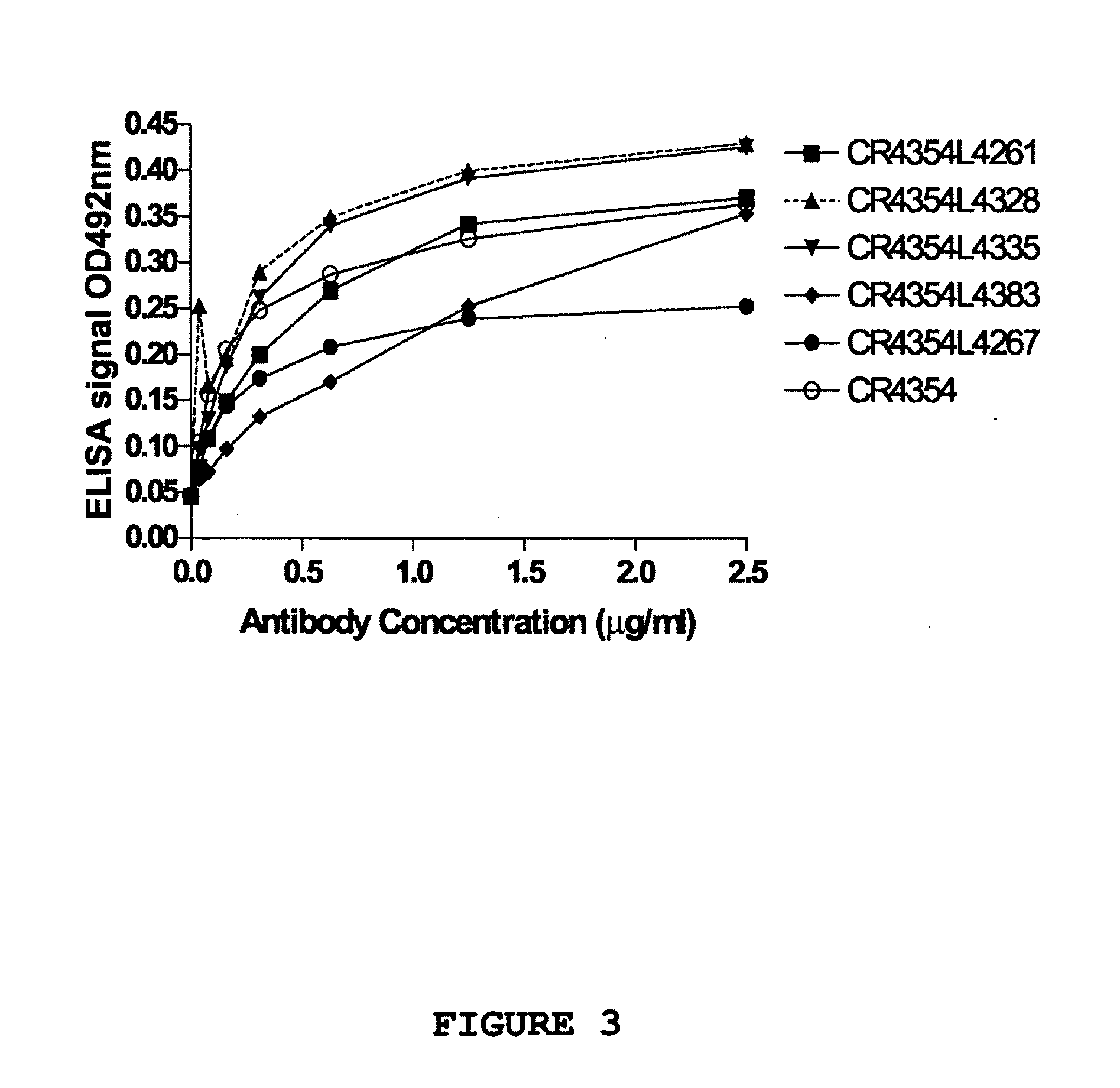Host cell specific binding molecules capable of neutralizing viruses and uses thereof
a technology of host cell and specific binding molecules, applied in the field of medicine, can solve the problems of not broadly applicable in the treatment of viral diseases, serious and unwanted side effects, and the role and function of host cell proteins in the viral assembly process are still highly speculative, so as to prevent, cure or stop or inhibit the spread of viruses, and improve the effect of the condition
- Summary
- Abstract
- Description
- Claims
- Application Information
AI Technical Summary
Benefits of technology
Problems solved by technology
Method used
Image
Examples
example 1
Construction of a scFv Phage Display Library Using RNA Extracted from Peripheral Blood of WNV Convalescent Donors
[0119]From three convalescent WNV patients samples of blood were taken 1, 2 and 3 months after infection. Peripheral blood leukocytes were isolated by centrifugation and the blood serum was saved and frozen at −80° C. All donors at all time points had high titers of neutralizing antibodies to WNV as determined using a virus neutralization assay. Total RNA was prepared from the cells using organic phase separation and subsequent ethanol precipitation. The obtained RNA was dissolved in RNAse free water and the concentration was determined by OD 260 nm measurement. Thereafter, the RNA was diluted to a concentration of 100 ng / μl. Next, 1 μg of RNA was converted into cDNA as follows: To 10 μl total RNA, 13 μl DEPC-treated ultrapure water and 1 μl random hexamers (500 ng / μl) were added and the obtained mixture was heated at 65° C. for 5 minutes and quickly cooled on wet-ice. Th...
example 2
Selection of Phages Carrying Single Chain Fv Fragments Specifically Recognizing WNV Envelope (E) Protein
[0124]Antibody fragments were selected using antibody phage display libraries, general phage display technology and MAbstract® technology, essentially as described in U.S. Pat. No. 6,265,150 and in WO 98 / 15833 (both of which are incorporated by reference herein). The antibody phage libraries used were two different semi-synthetic scFv phage libraries (JK1994 and WT2000) and the immune library prepared as described in Example 1. The first semi-synthetic scFv phage library (JK1994) has been described in de Kruif et al., 1995b, the second one (WT2000) was build essentially as described in de Kruif et al., 1995b. Briefly, the library has a semi-synthetic format whereby variation was incorporated in the heavy and light chain V genes using degenerated oligonucleotides that incorporate variation within CDR regions. Only VH3 heavy chain genes were used, in combination with kappa- and lamb...
example 3
Validation of the WNV Specific Single-Chain Phage Antibodies
[0131]Selected single-chain phage antibodies that were obtained in the screens described above were validated in ELISA for specificity, i.e. binding to WNV E-protein, whole inactivated WNV and WNV-like particles, all purified as described supra. For this purpose, whole inactivated WNV, the WNV E-protein, or WNV-like particles were coated to Maxisorp™ ELISA plates. In addition, whole inactivated rabies virus was coated onto the plates as a control. After coating, the plates were blocked in PBS containing 1% Protifar for 1 hour at room temperature. The selected single-chain phage antibodies were incubated for 15 minutes in an equal volume of PBS containing 1% Protifar to obtain blocked phage antibodies. The plates were emptied, and the blocked single-chain phage antibodies were added to the wells. Incubation was allowed to proceed for one hour, the plates were washed in PBS containing 0.1% v / v Tween-20 and bound phage antibod...
PUM
| Property | Measurement | Unit |
|---|---|---|
| Fraction | aaaaa | aaaaa |
| Fraction | aaaaa | aaaaa |
| Fraction | aaaaa | aaaaa |
Abstract
Description
Claims
Application Information
 Login to View More
Login to View More - R&D
- Intellectual Property
- Life Sciences
- Materials
- Tech Scout
- Unparalleled Data Quality
- Higher Quality Content
- 60% Fewer Hallucinations
Browse by: Latest US Patents, China's latest patents, Technical Efficacy Thesaurus, Application Domain, Technology Topic, Popular Technical Reports.
© 2025 PatSnap. All rights reserved.Legal|Privacy policy|Modern Slavery Act Transparency Statement|Sitemap|About US| Contact US: help@patsnap.com



